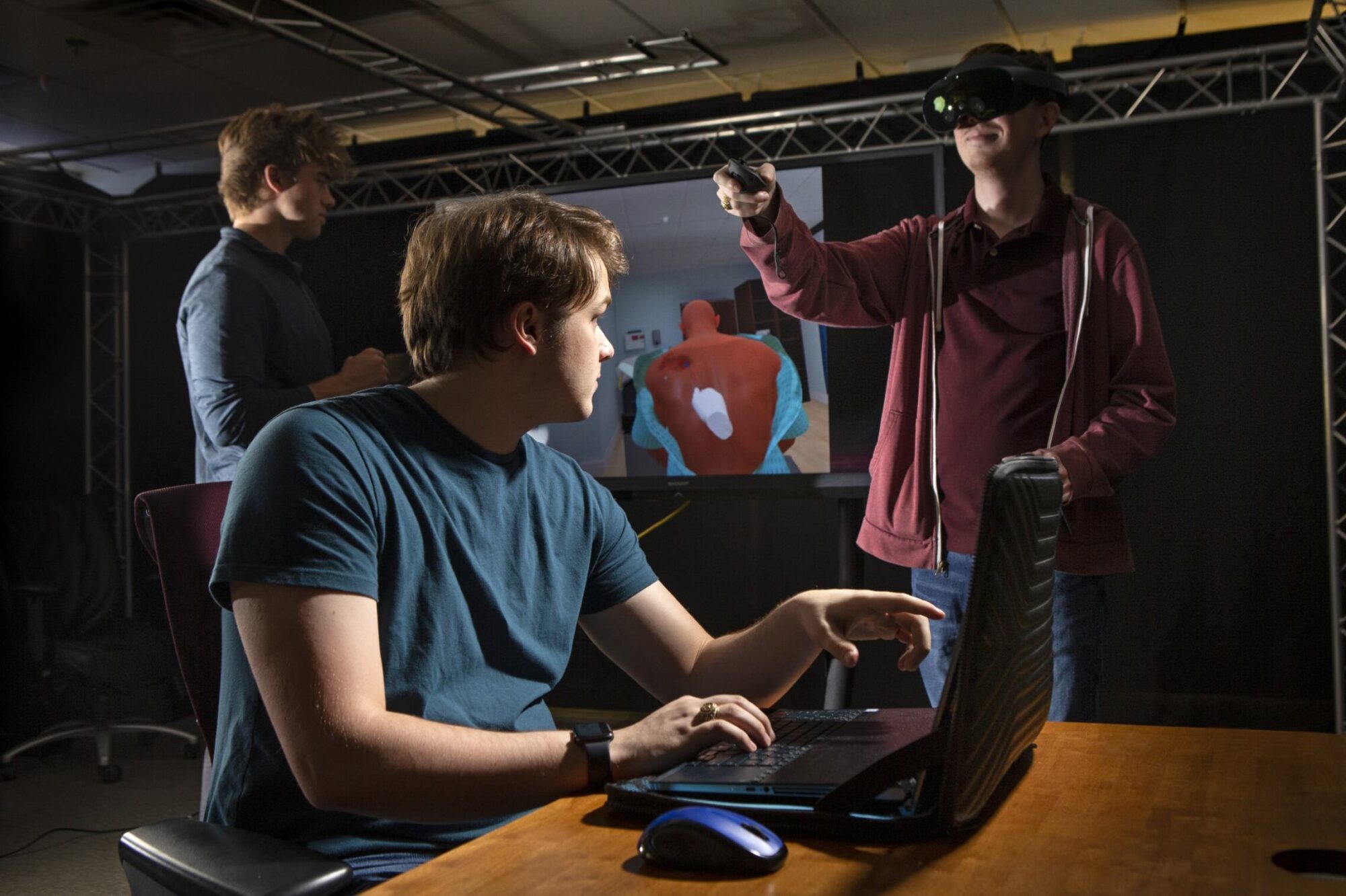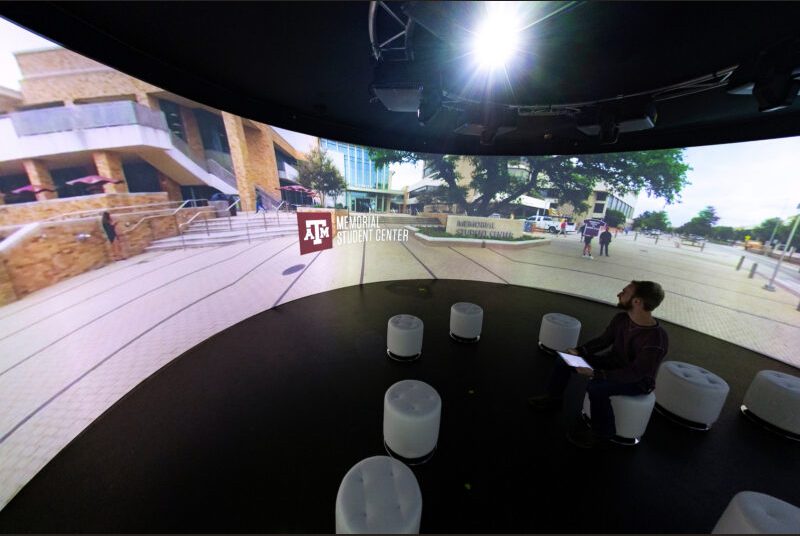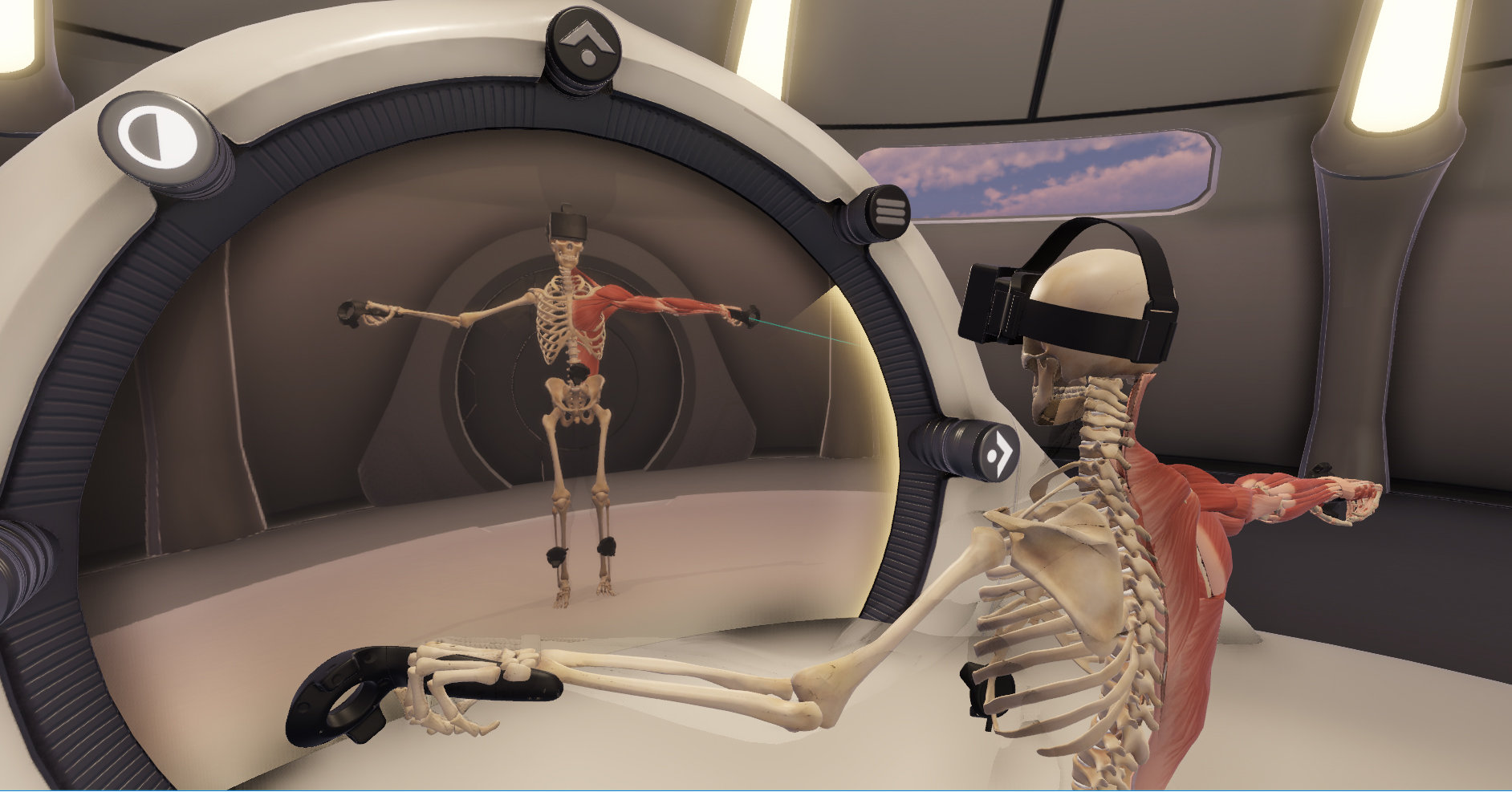Interactive and Immersive Education
The IAC’s Interactive & Immersive Education Initiative embraces cutting-edge interactive and immersive technologies to enhance educational practices across a diverse range of fields, from scientific studies to medical and nursing training. Engaging in embodied interaction bolsters cognitive learning processes, while immersive technology significantly enhances the mastery of complex procedural tasks.
The IAC collaborates with specialists from multiple domains and advances traditional education, integrating high-fidelity 3D computer graphics, haptic feedback systems and artificial intelligence.
Facilities

VIRL (Visualization Immersive Reality Lab)
The Visualization Immersive Reality Lab (VIRL) is an innovative research and teaching space dedicated to exploring immersive interactions. It is located on the second floor of the Langford Architecture Center, Building C, providing students and faculty with a state-of-the-art environment for their explorations in immersive technology.

Igloo Studio
The Igloo Studio provides the opportunity to learn in an immersive environment with a room-scale 360-degree screen, thanks to a donation from ExxonMobil. The circular structure stretches 22.5 feet, with a height of 11 feet. Six projection screens are anchored at the top, and a cooling system regulates the temperature. About 10 people can comfortably sit inside.
Research Projects
Forensic Nursing Projects
The IAC has an ongoing collaboration with the Center for Excellence in Forensic Nursing at Texas A&M University. The research team has been developing interactive VR/web-based applications in alignment with the Forensic Nursing educational programs (master’s program, certificate). They include evidence collection (female/male), trauma-informed care and mock-testimony application.
Nursing Education Projects
The research team has developed several virtual-reality applications and video-based programs. Those applications have been used in the official curriculum of the Nursing Program at Texas A&M University. In addition, some of the applications are targeting nurses in rural clinics and hospitals for appropriate training. The projects include SBIRT, PEDI, Aging, OB, Sepsis, PPH and Shoulder Dystocia.
Creative Anatomy Projects
We focus on integrating interactive/immersive technology to enhance the effectiveness of learning STEM concepts including gross anatomy. Dr. Jinsil Hwaryoung Seo founded Creative Anatomy Collective for this research in collaboration with Dr. Michelle Pine and others. The team has developed virtual- and augmented-reality applications that encourage construction and manipulation of anatomical components and integrating artistic practices into traditional anatomy curriculums.

Members
Core Faculty Members
Stacey Mitchell, clinical professor, School of Nursing
Laurie Charles, clinical assistant professor, School of Nursing
Caleb Kicklighter, instructional assistant professor, College of Performance, Visualization and Fine Arts
Michelle Pine, clinical associate professor, School of Veterinary Medicine and Biomedical Sciences
External Collaborators
Cindy Weston, dean and professor in the College of Nursing, University of North Texas
Elizabeth Wells-Beede, senior associate dean in the College of Nursing, University of North Texas
Contact
If you want to work with us, please contact the director of the IAC: creativity@tamu.edu.